Most of us recognize a jack-in-the-pulpit in the spring and summer with its distinctive little guy sitting under a canopy, but I wonder how many of you know the rest of the story. Last year’s Jack could very well be this year’s Jill – and vice versa. Jack-in-the-pulpits change sex from year to year based on how much energy a plant contains in its corm, a fat underground stem that stores the plant’s carbohydrates.
“Producing fruit takes a lot of energy,” said Dan Jaffe, a botanist with the New England Wild Flower Society. “Most plants will produce male-only flowers while they are storing up additional energy. The male flowers produce pollen, which doesn’t require much energy. As the plant matures it will continue to photosynthesize and store energy in the form of sugars in its root system. Once enough energy has been stored, the plant will produce female flowers, and if pollinated will then produce berries. After fruiting, the plant will revert back to being male, and the cycle will continue.” The female or male flowers are hidden in the stem (spadix) so you can’t tell if he’s a she by looking but one clue I read was that Jills have two leaf shoots while Jacks have only one.
These guys/gals reproduce both vegetatively and sexually. In vegetative propagation, new plants arise from the parental corm which sounds like something out of science fiction. In sexual reproduction, pollen from male flowers is transferred to female flowers by pollinating insects.
I’ve been on a quest to find Jill in her berry stage, and finally, with the help of observant fellow hikers, I saw three. They are more difficult to spot this time of year among all the full grown ferns and dense vegetation. These guys/gals are perennials which live for more than 25 years so you should have lots of opportunities to see them. They like shady woodlands and, to me, conjure up images of forest fairies listening to Jack’s or Jill’s sermon.
“Producing fruit takes a lot of energy,” said Dan Jaffe, a botanist with the New England Wild Flower Society. “Most plants will produce male-only flowers while they are storing up additional energy. The male flowers produce pollen, which doesn’t require much energy. As the plant matures it will continue to photosynthesize and store energy in the form of sugars in its root system. Once enough energy has been stored, the plant will produce female flowers, and if pollinated will then produce berries. After fruiting, the plant will revert back to being male, and the cycle will continue.” The female or male flowers are hidden in the stem (spadix) so you can’t tell if he’s a she by looking but one clue I read was that Jills have two leaf shoots while Jacks have only one.
These guys/gals reproduce both vegetatively and sexually. In vegetative propagation, new plants arise from the parental corm which sounds like something out of science fiction. In sexual reproduction, pollen from male flowers is transferred to female flowers by pollinating insects.
I’ve been on a quest to find Jill in her berry stage, and finally, with the help of observant fellow hikers, I saw three. They are more difficult to spot this time of year among all the full grown ferns and dense vegetation. These guys/gals are perennials which live for more than 25 years so you should have lots of opportunities to see them. They like shady woodlands and, to me, conjure up images of forest fairies listening to Jack’s or Jill’s sermon.
Thank you to observant hikers Kathy, Marty, Michele, Betsy, Mo, Martha, Sharon, Cathy, and Heidi

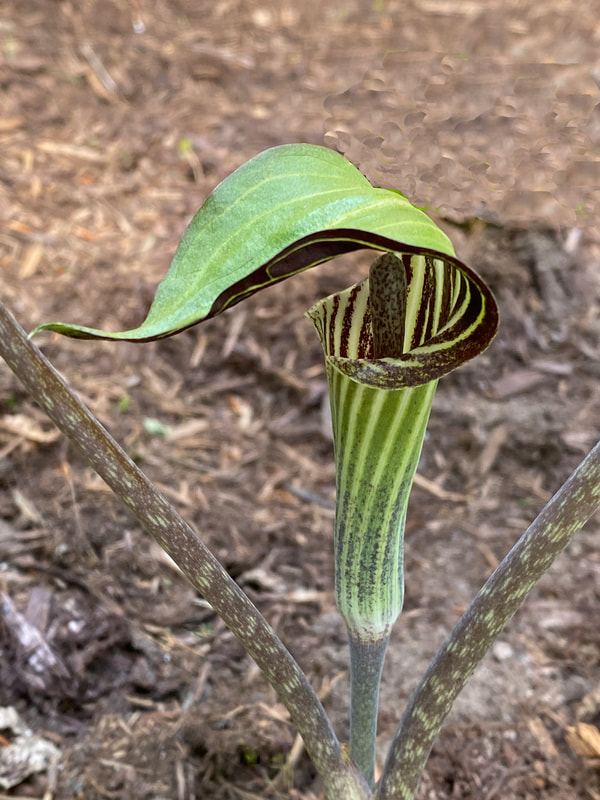
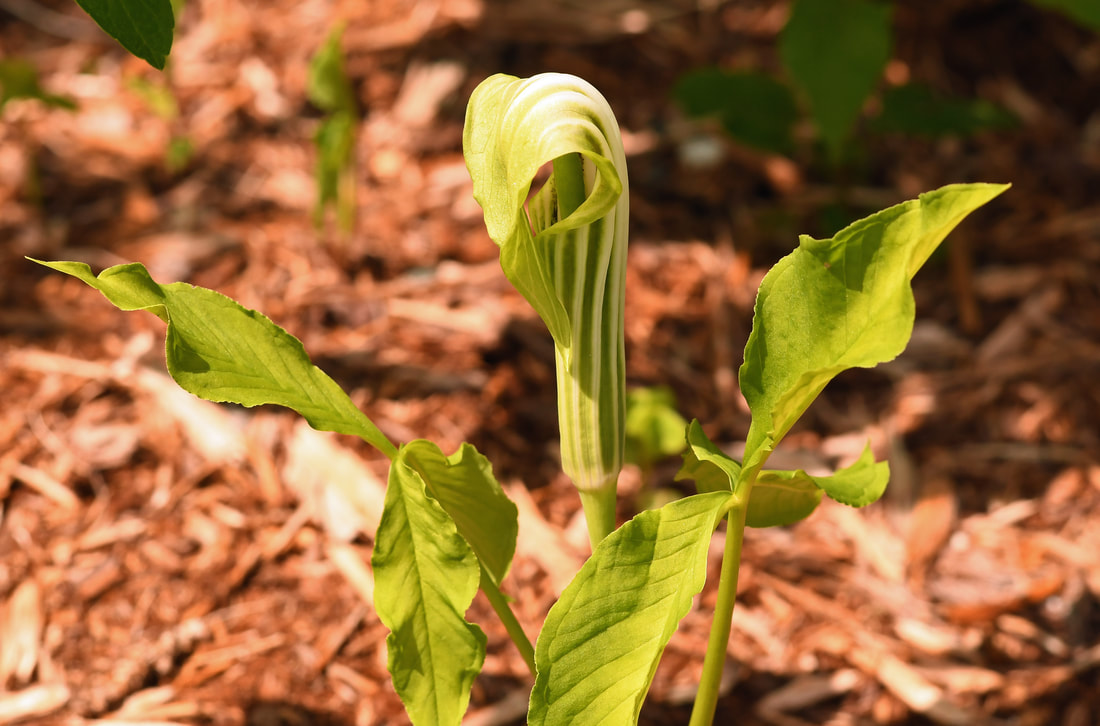
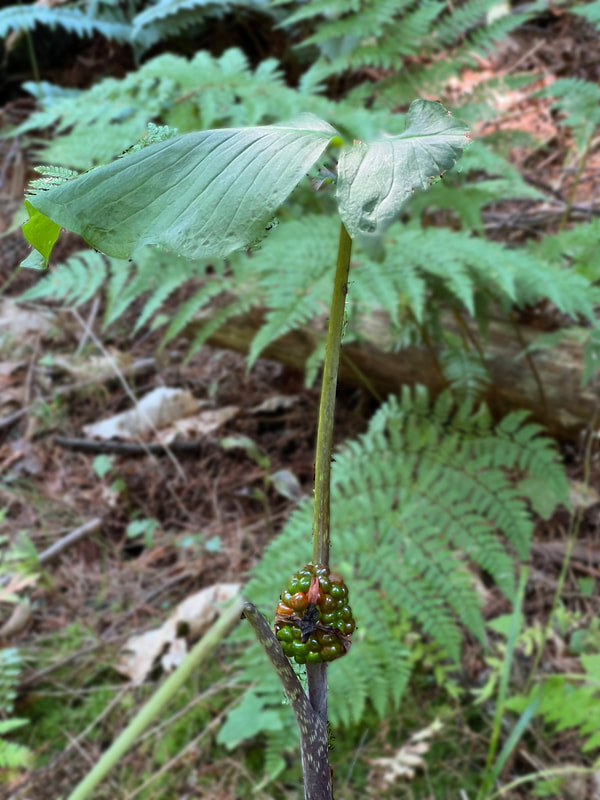
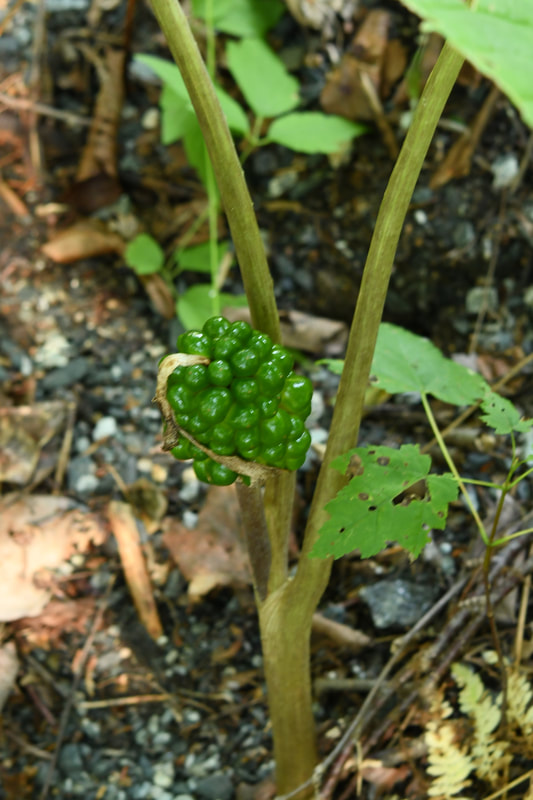
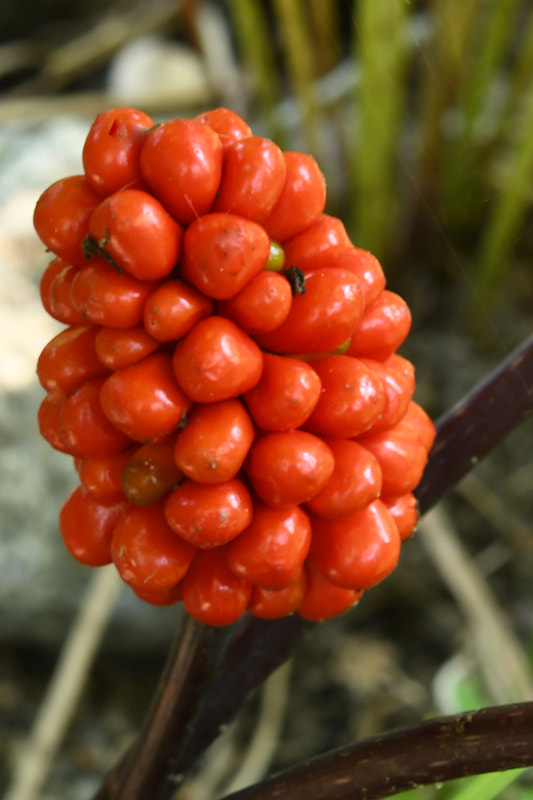
 RSS Feed
RSS Feed